OBAMA’S PLAN COLOMBIA: SUPPORTING DRUGS AND TYRANNY
The problem today, as it was in 1997, is a government in bed with criminal syndicates. How else could one describe a “negotiation” that offers complete impunity to the world’s leading Cartel, launders and protects its assets, and gives narco-terrorists political status and power? Back then that was called corruption; today, it’s called “peace.”
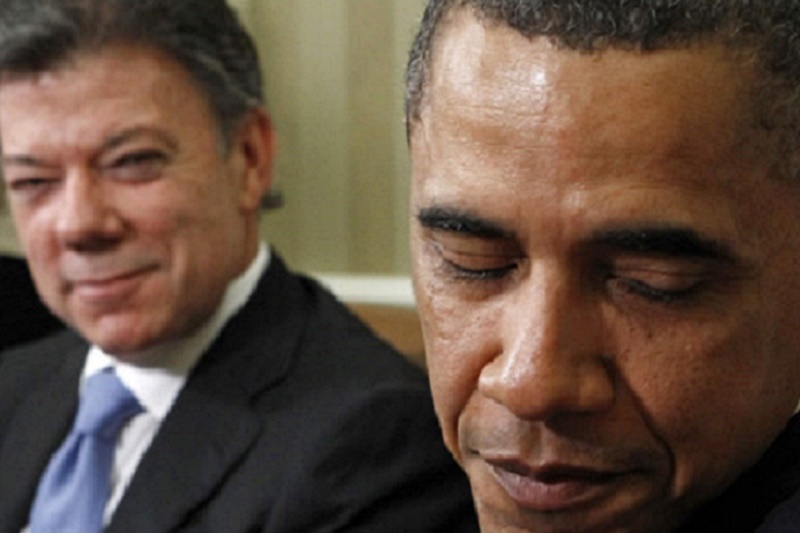
Obama es socialista fabiano. Santos sigue esa corriente también
Obama’s Plan Colombia: Supporting Drugs and Tyranny
The problem today, as it was in 1997, is a government in bed with criminal syndicates. How else could one describe a “negotiation” that offers complete impunity to the world’s leading Cartel, launders and protects its assets, and gives narco-terrorists political status and power? Back then that was called corruption; today, it’s called “peace.”

By Lia Fowler*
January 26/2016
On February 4, President Barak Obama will host his Colombian counter-part Juan Manuel Santos at the White House to commemorate 15 years of U.S. aid, through Plan Colombia. They will also discuss future aid in light of on-going peace negotiations in Havana between the Santos government and the narco-terrorist group FARC. Ironically, the program conceived to combat drug trafficking and promote democracy in Colombia, promises only to strengthen the world’s leading drug cartel and support an emerging dictatorship.
The tenor of the meeting was forecast by an interview of Obama in Colombian daily El Tiempo this week. Gushing over the Santos-FARC “peace process,” the war on drugs, and the rule of law in Colombia, Obama’s comments painted a picture far removed from the reality Colombians live with every day.
“Colombia will be a model on how to achieve peace with justice,” Obama stated. He added that the Colombian government had developed “a new anti-narcotics strategy,” and that, thanks to Plan Colombia, the U.S. had helped in the “re-establishment of the rule of law.”
Yes and no. Until about 2010, Plan Colombia was, indeed, effective in combating drug trafficking. Cocaine production went from 926 metric tons in 2001 to 350 metric tons in 2010, according to the United Nations Office on Drugs and Crime. More than 2,000 criminals were extradited between 2002 and 2010, as drug trafficking and money laundering were aggressively investigated and prosecuted.
But four years of Santos-FARC negotiations have put Colombia back where it was before Plan Colombia – when the U.S. had decertified the country as a partner in the war on drugs and the Colombian President’s U.S. Visa had been canceled, due to his ties to drug Cartels.
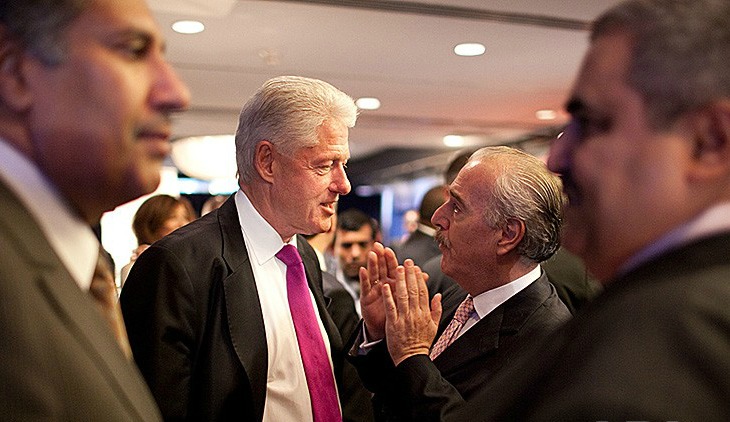
Back then, U.S. Representative Dennis Hastert summed up the problem at a Committee on Government Reform and Oversight meeting in 1997: “International drug trafficking organizations based in Colombia are the world’s leading producers of cocaine… There can be no doubt that Colombia’s political and judicial systems are confronting corruption. Sentences for drug traffickers need to be strengthened, and a re-examination of money laundering and extradition needs to take place.” As to the FARC, he stated: “There should be no mistake. The guerrillas of Colombia long ago abandoned ideology.”
Today, Colombia is again the world’s leading producer of cocaine, mostly attributable to the FARC. In 2014, production rose to 442 metric tons; estimates for 2015 put it at 600 metric tons. Aerial spraying of coca fields has been suspended, and manual eradication is impossible, as Santos has grounded the aerial support necessary to protect the troops. The “new strategy” is not working.
The FARC’s wealth is estimated by Forbes magazine to be $600 million. Yet the Santos government protects the group’s assets, publicly echoing the terror group’s claim that they have no money. Since December 2015, Santos has denied two U.S. extradition requests for FARC terrorists wanted on drug-trafficking and kidnapping charges. More egregiously, the FARC has refused to finalize the deal, unless the U.S. releases convicted FARC leader “Simon Trinidad,” currently serving a 60-year sentence in the U.S. for his role in kidnapping three U.S. citizens in 2003.
While in 1997, then-Asst. Secretary of State Robert Gelbard complained that top drug lords were receiving “absurdly short” sentences, under today’s peace deal, drug trafficking would be considered a “political” crime and drug lords would receive no jail terms at all. Those already serving time would be released. In fact, the deal calls for no jail time for any atrocity, including crimes against humanity – a level of impunity that will likely trigger the jurisdiction of the International Criminal Court. And though the deal has not been ratified, 30 terrorists have already been pardoned and 17 were released last week. The rule of law has never been so eroded.
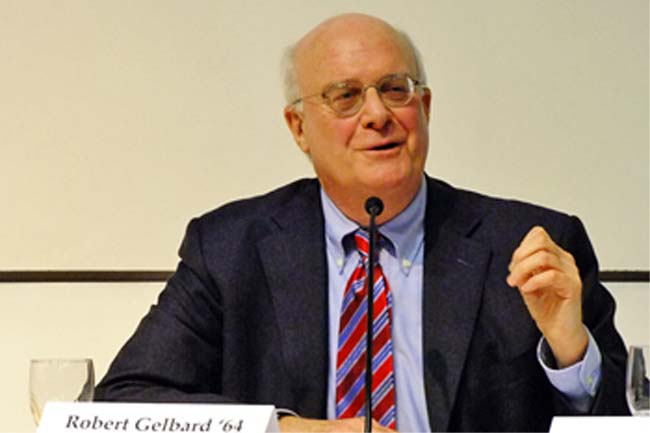 The problem today, as it was in 1997, is a government in bed with criminal syndicates. How else could one describe a “negotiation” that offers complete impunity to the world’s leading Cartel, launders and protects its assets, and gives narco-terrorists political status and power? Twenty years ago that was called corruption; today, it’s called “peace.”
The problem today, as it was in 1997, is a government in bed with criminal syndicates. How else could one describe a “negotiation” that offers complete impunity to the world’s leading Cartel, launders and protects its assets, and gives narco-terrorists political status and power? Twenty years ago that was called corruption; today, it’s called “peace.”
To implement this “peace,” Santos has asked Congress to adopt a law that would give him the power to rule-by-decree. And despite promises to bring the deal to a national referendum, he has scrapped the idea, floating instead the possibility of a plebiscite, where the disingenuous single question would be: “do you want peace?” Not confident of a favorable outcome even with that long-used trick of tyrants, at Santos’ request Congress lowered the threshold of voter participation from 51 percent – as required by the Constitution – to 13 percent for the plebiscite to be valid.
Obama grandiosely stated in his interview, “the whole world is witness to the extraordinary progress Colombia has made.” But most Colombians disagree. Santos has an approval rating of 21 percent, according to last week’s JanHaas poll. The main points of the peace deal – impunity and political status for terrorists – have consistently been rejected by around 80 percent of the population in numerous polls.
U.S. General Barry McCaffrey (Ret.), who helped formulate Plan Colombia as the former U.S. Drug Czar, stated in a recent PR Newswire interview that the Santos-FARC deal “could maintain or increase cocaine and heroin production, ease transit restrictions and enforcement, keep enormous profits for the FARC, worsen the heroin crisis in our country, and threaten the security of Colombia and increase U.S. drug abuse.”
Plan Colombia – as originally crafted – is needed today more than ever. But it must not be used to prop up a Santos-FARC government in the so-called “post-conflict.” Fortunately, it is the U.S. Congress that controls the purse strings; it must ensure that Plan Colombia remains true to its mission.
* Lia Fowler is an American journalist and former FBI Agent.
@lia_fowler

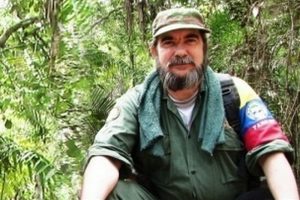
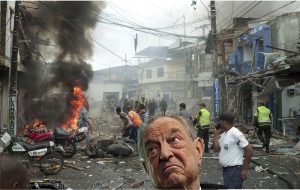
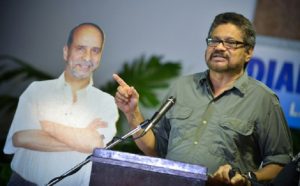
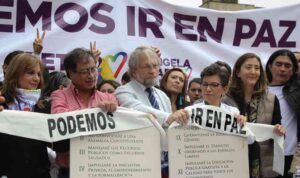
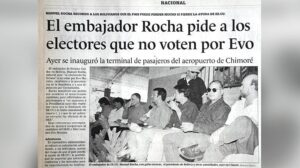
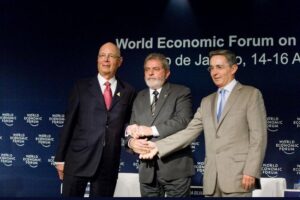

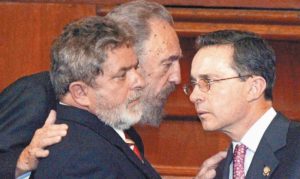
Comentarios